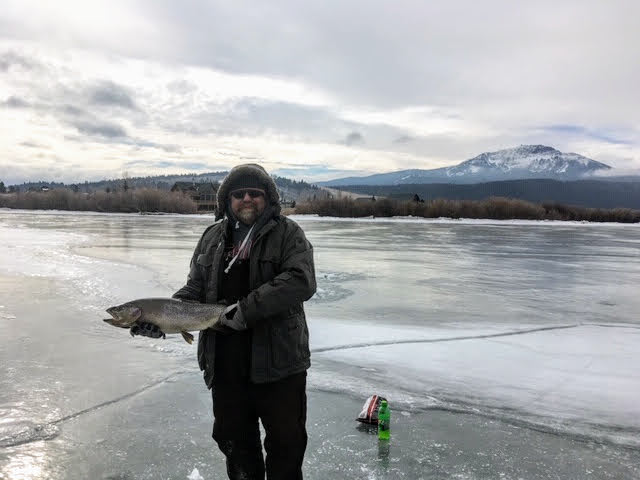For Idaho educator Laron Johnson, the 2018 New York City seminar, followed by the 2019 seminar in Billings, Montana, provided not only professional development but a way to build community: “Holocaust education is not required in this state, yet we have so many schools that have developed excellent programs in human rights education. I am just fortunate to have such amazing people of the caliber of Kerry Thomas, David Reeser, Bryce and Ileah Bodily to collaborate with, all of whom are TOLI teachers. This system of collaboration has created two phenomenal Holocaust programs between two rival schools in Idaho.”
For Laron, Holocaust education has been a way to confront the history of his state, support the struggle of Indigenous peoples, and create a lifelong community of educators. At Rigby High School in Rigby, Idaho, Laron teaches Holocaust Studies, Maximizing Personal Development, Economics, and World History from grades 9-12. His commitment to human rights education is palpable: “I have always made human rights an integrating context in my classroom; I even make connections with this centerpiece in Economics.”
It may sound challenging to link Holocaust and human rights education to a subject like Economics, but not for Laron: “I have an excellent assignment that allows students to investigate past anti-semitic events that lead up to the Holocaust. In our concluding portion of the assignment we use the ADL yearly discrimination map. Students are amazed that they can find these tragic events so close to their homes.”
Speaking openly about Idaho’s ties to White supremacy, Laron does not shy away from confronting the state’s sordid past, while highlighting the legacy of resistance to hate: “This is Idaho; the former home to the Aryan Nations. In response to this reputation, many Idahoans rose up and created the Anne Frank Memorial in Boise, Idaho, now the centerpiece to the Wassmuth Center of Human Rights.”
Laron was so impressed with his experience at the 2018 New York City seminar that he decided to continue his work with TOLI in 2019 by attending the World’s Apart But not Strangers: Holocaust Education and Indian Education for All Seminar in Billing’s Montana with four other Rigby High School teachers “who not only developed better teaching practices, but our own friendships.”
At Rigy High School, Holocaust education is thriving: “Between Kerry Thomas and myself…we have over 210 students in seven sections taking Holocaust of their own accord. Our classes are passionate and more reverent than most religious services you have ever attended.”
The enthusiasm for the program among Rigby High School students is nothing short of inspirational: “When you see the compassion of our students it draws you further into the subject. Is it a personal quest to solve the questions of morality… but when you see that your students desire the journey themselves you magnify your own quest tenfold.”
In addition to Holocaust education, Laron bridges the gap between the lessons of the Holocaust and the struggles of local Indigenous groups. “This is a significant time of careful consideration pertaining to respecting Native Americans in the State of Idaho. Right after we got back from the TOLI Montana Seminar 17 schools with Native American Mascots were being asked by the Shoshone-Bannock Tribes to no longer use Indigenous characters in school representation. Some schools were heated and some were quite civil, but two schools in the last year have changed their mascots. Indeed, this is a subject that comes up frequently in our classrooms.”
Laron looks back on both of his TOLI experiences fondly and reflects on the impact of the program: “I am a professional development nut and can honestly state that TOLI is the best professional development model out there. The writing element is key and the sharing interaction in both small and whole groups is something to live by. The guest speakers of paramount experience just put power into everyone’s pen; you absorb it and it becomes poetic art on the written page. I thought my Montana experience in writing would not live up to the NYC experience. I was wrong and… this time I was developing the greatest relationships with my friends and making new friends at the same time.”
Although Idaho has a history of human rights violations, Laron remains hopeful about the future. “Despite our past reputation there are so many people who have risen up and done something about it. I certainly believe Olga would be proud that her legacy reaches the far corners of rural America. “

